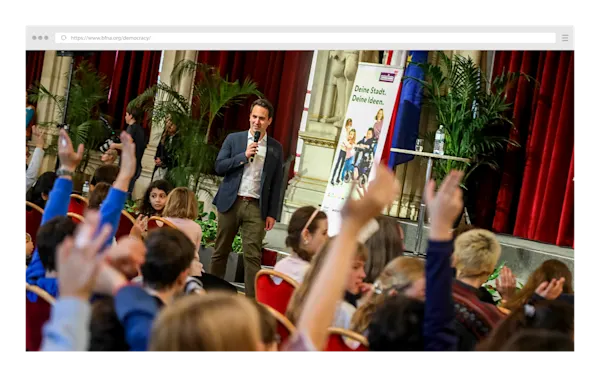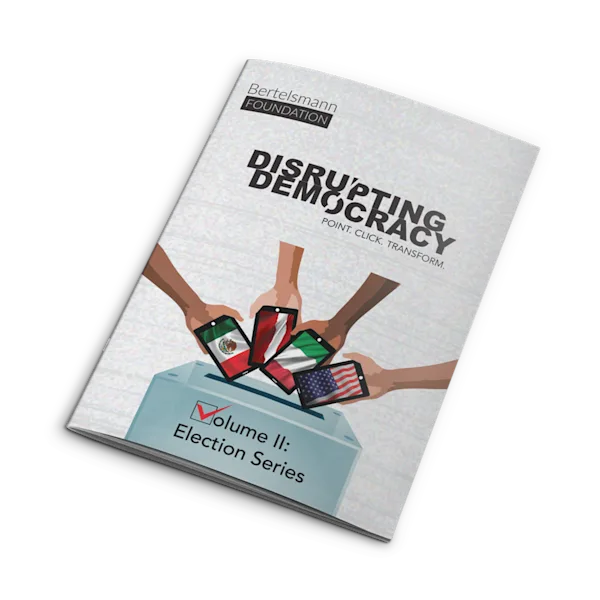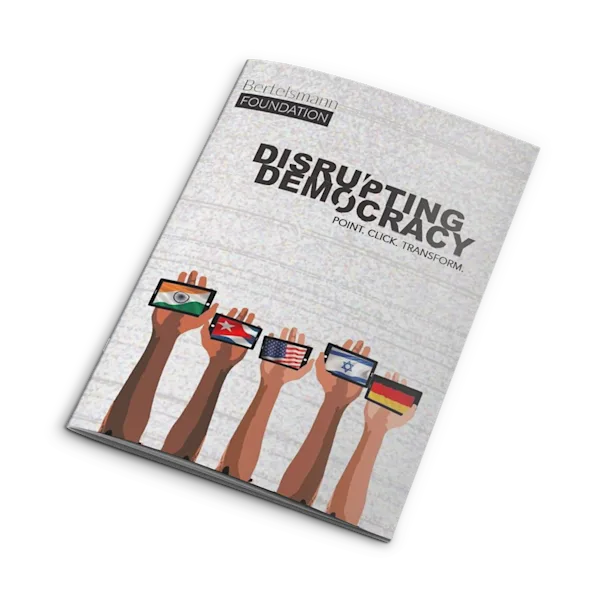
Democracy
Democratic decline in the U.S. and Europe is weakening the transatlantic relationship and undermining its influence around the world. America and its European allies need to recalibrate their values and practices at home in order to serve as beacons to aspiring democracies abroad. But disruptions to our democratic traditions keep emerging: from new technologies changing the way we communicate and work to pandemics and economic shocks. Our work analyzes how these disruptions are playing out, and it will be up to civil society, lawmakers, and the people to prepare our democracies for the future.

How to Fix Democracy
Host Andrew Keen interviews prominent thinkers, writers, politicians, technologists, and business leaders who enlighten and challenge us as we seek the answers to How to Fix Democracy.

City Solutions Series
The commitment to liberal democracy is a core value of the transatlantic community. And while democracy has always faced external threats, a second front has emerged in recent years, challenging its fundamental principles from within. On every continent, local and national governments are experimenting with new methods of tackling the threats to public confidence and democratic governance by addressing a range of common challenges. The drivers of democratic backsliding are now clear, so this project focuses on uncovering solutions, then amplifies these best practices for a transatlantic audience searching for innovative approaches to reverse democratic decline.
Graphic Images: Autocrats and the Use of Power
In this fourth and final installment of our Disrupting Democracy series, "Graphic Images: Autocrats and the Use of Power," we will look at how three authoritarian regimes undermine the prospects for democracy and stability in their respective regions. Drawing from the more than 15 years of data from the Bertelsmann Transformation Index, this publication reimagines country and regional level data into infographics that shine a light on three distinct cases: Russia, Iran and China.

Disrupting Democracy Vol. II
In 2018, for our second instalment of the Disrupting Democracy project we turned our attention to elections. From the rise of Five Star and Lega in Italy to U.S. Democrats’ success winning the U.S. House of Representatives, and from to Morena and Andrés Manuel López Obrador’s victory in Mexico to a cultural and linguistic divide in Latvia, Disrupting Democracy Vol. II: Election Series recorded how technology was put to work to make a difference at the ballot box.

Disrupting Democracy Vol. I
Beginning January 2017, the Bertelsmann Foundation embarked on a journey to explore how digital innovation impacts democracies and societies around the world in a series called "Disrupting Democracy." In volume one, we focused on key challenges that have emerged as a result of technological disruption from the rival capitals of Washington and Havana, the bustling streets of New Delhi, the dynamic tech startups in Tel Aviv, and the efficient order of Berlin.
